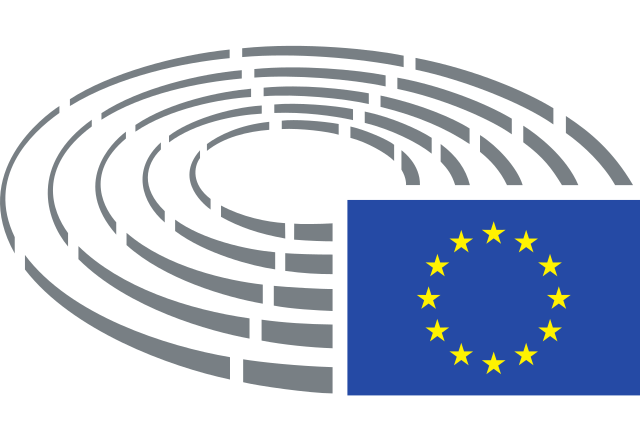In mid-January 2023, the European Parliament voted by a large majority, recommending the inclusion of Iran’s Revolutionary Guards in the EU’s list of terrorist organizations. The Parliament also called on its member states to include this organization in their country’s list of terrorist organizations. The decision was portrayed as a new line in relations between Europe and Iran. However, it appears that the Parliament’s decision is not expected to change or stiffen European countries’ policy towards Iran out of concern of intensifying Iran’s hostility towards them.
After the decision in the European Parliament, the Iranians were quick to condemn it. Mohammad Bagher Ghalibaf, chairman of the Iranian Parliament, stated that the Iranian legislature would declare the armies of European countries as terrorist groups if the resolution was ratified by EU institutions. Senior Revolutionary Guards officials noted that they would act against the interests of the countries supporting the decision.
In the face of the explicit threats made by the Iranians and in the state of affairs concerning the stalled negotiations on the nuclear subject between Iran and the European Union, our assessment is that some EU countries will be in no hurry to ratify the European Parliament’s recommendation to designate the IRGC as a terrorist organization. This decision has several main motives, which also stem from concerns regarding future damage to the European forces operating in the Middle East, specifically in Iraq and Syria. It is also possible that European countries, which dispatched soldiers to UNIFIL and those operating on the shipping lanes near Lebanon, will abstain from this vote so as not to endanger their forces.
The likelihood of the resolution being adopted seems scarce since it does not receive the overwhelming support of senior EU diplomats conducting the nuclear agreement negotiations with Iran. The founding and leading EU countries, Germany and France, have also signaled that they will not adopt the European Parliament’s decision. Ursula Gertrud von der Leyen, President of the European Commission, who previously served as Germany’s defense minister, announced a series of pressure acts the EU would seek to promote but did not specify what measures would be exerted against the Iranians.
It is to be noted that European countries, including Germany and Britain, have already designated Lebanese Hezbollah as a terrorist organization (both military and civilian wings). Still, there is a clear distinction made by European countries between the IRGC and its proxies. Foreign ministries in European capitals still have a clear ranking realizing Iran’s proxies as terrorist organizations but not Iranian bodies acting on behalf of the state. For this reason, there is a European concern over recognizing the IRGC as a terrorist organization. In European eyes, such a decision would escalate Iran’s operations in Syria, Lebanon, and Iraq against European military forces and also against humanitarian bodies that are more vulnerable, operating in the Middle East.
France, which has not yet recognized Hezbollah as a terrorist organization, has historically continued to utilize its levers of influence in Lebanon, similar to its involvement in solving the economic crisis in the country and its involvement in the agreement between Israel and Lebanon on the demarcating of maritime borders. Traditional French involvement was also reflected in the Second Lebanon War in 2006. The French involvement led to the proposals for a ceasefire and the decisions for the expanded mandate of UNIFIL in south Lebanon. Unfortunately, a mandate that has not been implemented due to fear of Hezbollah and its activity, preventing UNIFIL from operating according to its mandate.
We understand that France is not expected to instruct the recognition of the IRGC as a terrorist organization out of concern that such recognition would weaken its levers of influence in Lebanon. Just as it does not recognize Hezbollah as a terrorist organization. At the same time, France operates through UNIFIL, and French forces monitor Hezbollah’s activity in the region. As in the past, France refrained from openly condemning Hezbollah with the aim of not endangering the French soldiers in UNIFIL. However, in September 2022, as part of the cooperation between Israel and France, the former Israeli chief of staff, Kochavi, visited his French counterpart, General Thierry Burkhard.
The French received a report from Kochavi regarding Hezbollah’s deployment in Lebanon in violation of UN Resolution 1701. The French are well acquainted with Hezbollah’s activities but continue to adhere to a political solution for Lebanon, which includes broad economic guarantees combined with the World Bank and other companies to prevent the collapse of the Lebanese government and the continuation of dialogue with it. Any decision that endangers the stability of the Lebanese government will lead to French opposition. Therefore, any French activity regarding Hezbollah and Iran utilizes risk management vis-à-vis Tehran.
In our assessment, even Germany, which increased its involvement in the war in Ukraine after hesitations, is not likely to act against the Revolutionary Guards since it has a broad presence and interests in the region. In Syria, the German army, the Bundeswehr, operated as part of NATO’s activity, and today Germany has officially ended its air operations in Syrian skies and is promoting humanitarian activity in Syria.
Officially, most of the German civilian groups’ activity takes place in northeastern Syria, liberated from ISIS, although there is a likelihood that the Germans will continue to conduct airforce activity in conjunction with NATO forces in the region. Parallel to this, Germany decided to extend its military presence in Iraq for another year. According to official reports by the German Foreign Ministry, ISIS remains a major threat in Iraq, both in the region and beyond.
The ISIS terrorist organization, which is still capable of carrying out attacks in Iraq and Syria, requires continued presence and activity against it out of fear of considerable ramifications for the region that will affect European and worldwide security. Most of the German activity remains in the air, assisting in monitoring and making intelligence means accessible to the forces operating in the region.[1] German intelligence also retains a wide network of contacts in Lebanon, which received exposure after German mediation in a deal to return the bodies of Israeli soldiers held by Hezbollah in 2008 and continued indirect contacts that Israel conducted through German intelligence.
Germany maintains airforce detachments in Jordan at the Muwaffaq Salti Air Base, about 50 kilometers south of the Jordanian-Syrian border. The German army moved its forces to this base under Ursula Gertrud von der Leyen’s tenure as Minister of Defense. The base became essential for safeguarding against infiltration attempts from the Syrian border and attempts of militias operating in Iraq to penetrate Jordanian territory and approach the Israeli border.
Most of this activity is monitored and reported at this stage to maintain a safe space against attempts to destabilize the Hashemite Kingdom. Before the latest Iranian threats, the German army demanded that armed UAVs help protect soldiers escorting military convoys in dangerous areas. In April 2022, the German army signed a major contract with the Israeli company Rafael to acquire UAVs that could also defend Germany and NATO in their missions throughout the region.
Over the past year, Chancellor Olaf Scholz’s government signed an agreement to purchase UAVs for the German army and approved a request by the Ministry of Defense to purchase ammunition in hundreds of millions from Rafael. The decision to arm the Israeli-made Hron-TP UAVs, leased by the German army, is part of a broader change in Berlin’s defense policy following the war in Ukraine.
The clear European interest is to maintain a presence in the region without endangering the forces operating there. Therefore, the decisions expected in the European Union will not aggravate the position vis-à-vis Iran. The main EU members (France and Germany) are not interested in jeopardizing their interests in the Middle East and the guiding principle of the negotiations with Iran.
However, understanding the potential threat from advanced conventional Iranian weapons and making determined decisions against the regime in Tehran are what can preserve regional security and prevent escalation that will deter the Iranians from hostile actions. In this context, see our report, which was published on January 30, 2023:
[1] https://www.auswaertiges-amt.de/en/aussenpolitik/themen/fight-against-is/2383354






